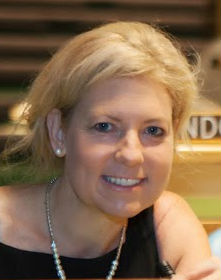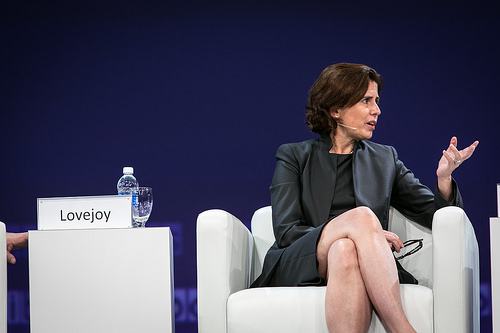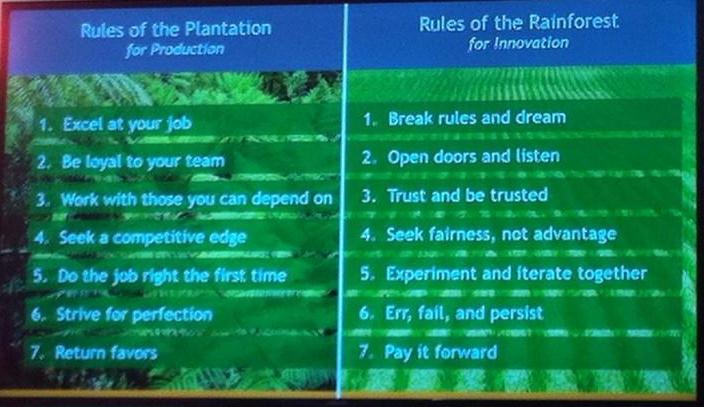 by beCause Global Associate Jennifer Sertl, founder Agility3R, helping leaders navigate complexity – Sibos is an annual conference organized by the SWIFT International Banking Operations Seminar for the financial industry. This year’s conference was held at the Boston Convention and Exhibition Center. Over 7,000 decision makers were in attendance from over 212 countries debating the future of money in particular global finance, crypto-currencies, payments, securities and trade issues. While much of the conference was geared to financial institutions and multinational corporations, there were messages and lessons discussed that can help all leaders across sectors be better prepared and should be scaled. All leaders will navigate sea-change better by strengthening discernment, building strong networks, and ensuring a more robust toggle between local and global.
by beCause Global Associate Jennifer Sertl, founder Agility3R, helping leaders navigate complexity – Sibos is an annual conference organized by the SWIFT International Banking Operations Seminar for the financial industry. This year’s conference was held at the Boston Convention and Exhibition Center. Over 7,000 decision makers were in attendance from over 212 countries debating the future of money in particular global finance, crypto-currencies, payments, securities and trade issues. While much of the conference was geared to financial institutions and multinational corporations, there were messages and lessons discussed that can help all leaders across sectors be better prepared and should be scaled. All leaders will navigate sea-change better by strengthening discernment, building strong networks, and ensuring a more robust toggle between local and global.

“People focus on protection when we really need them to focus on detection” says Kristin Lovejoy at the Cyber Security Panel. (photo of Kristin Lovejoy GM, IBM Security Services Division courtesy of JoAnn Healy of Swift )
Attacks are inevitable and there are significant things that can be done to support “digital hygiene.” Many individuals may feel that protecting themselves against cyber crime is a loosing battle or that the elephant is too big to eat. That may lend itself to learned helplessness or a sense that these are “not my issues.” Lovejoy believes cyber war is an issue that impacts governments, organizations and individuals and the onus is on everyone to help in this battle. Citing a hand washing study done at the University of Colorado which reported that hand washing as a habit increased student vitality and reduced absenteeism, Lovejoy believes that there are similar habits regarding digital care that increase security. Simple examples include ensuring every device has a security code that changes frequently and enabling two step authentication. Everyone has a role to have good habits in protecting personal systems at the micro and corporate systems at the macro. Along with these habits is the skill to detect. Sense and gut feel increasingly have a role to play as fundamental core competencies. When asked the mission critical business skill she seeks to hire, without hesitation the answer “discernment.” She continues, “we talk a lot about intellect and at the end of the day it is discernment that makes the biggest difference on my team”
Swift has an internal innovation lab called Innotribe, which is a group of individuals who travel globally to collect innovative thinkers to bring to Sibos to help bridge the gap between protection and innovation. Two speakers in particular made it very clear that competitive advantage today requires individuals build robust relationships across business sectors. Peter Hinssen asserts,“if you understand networks, you will understand the future.” Things are more relational and less hierarchical. There is too much to know and individuals can no longer be single point sources. Those who will have the best sense of reality are those who live and foster relationships in robust networks. So many people like to be with individuals that are similar in lifestyle and expression. Yet, navigating complexity requires people to be more interested in what they have to learn from one another than what it is that they have in common. Similarly Ann Badillo urges that rather than think of a network as a community, think of it “as a rainforest.” She says,“we need to go beyond building networks to building eco-systems.” This requires a much more robust inclusive design around friends, clients, customers, shareholders.
 Sustainable innovation and entrepreneurial growth come from ecosystems, not mere assets. Ecosystems are environments designed from the bottom-up to foster serendipitous interactions. The ecosystems are nurtured by several key cultural traits: connectivity, diversity of ideas and talents, deep levels of trust, motivations that rise above short-term zero-sum calculation and cultural norms that encourage dreaming, risk-taking, and paying it forward.
Sustainable innovation and entrepreneurial growth come from ecosystems, not mere assets. Ecosystems are environments designed from the bottom-up to foster serendipitous interactions. The ecosystems are nurtured by several key cultural traits: connectivity, diversity of ideas and talents, deep levels of trust, motivations that rise above short-term zero-sum calculation and cultural norms that encourage dreaming, risk-taking, and paying it forward.
Penny Hembrow, VP of Global Banking at CGI Group, Inc was an exhibitor at Sibos. When asked about today’s competitive advantage and navigating complexity, she gave a large smile and let out a sigh, “At the end of the day we must never forget that consulting at its best no matter what you do is about problem solving.” One of the biggest challenges we have right now is how to be globally minded yet serve our local communities. We have to toggle all the time between global and local. We might have large global networks, but at the end of the day most transactions are really made in person face to face. Even though it might be difficult, one has to find a way to have one foot planted in the macro and one planted in office in the life of the person you are serving. Hembrow refers to this as “the art of proximity – bringing global relevance at a macro level to the front door of the person you are serving.”
Regardless of changes in technology and changes in the economy, navigating change comes down to discipline and choice. We must not be lazy and keep good hygiene for whatever craft we are in. We must not only sharpen our intellect but also sharpen our wisdom. We must invest in nurturing and fostering a cross section of relationships across the business ecosystem. And we must never forget no matter how vast our global community intimacy still is our golden lever.
Onward in the sea-change . . .

